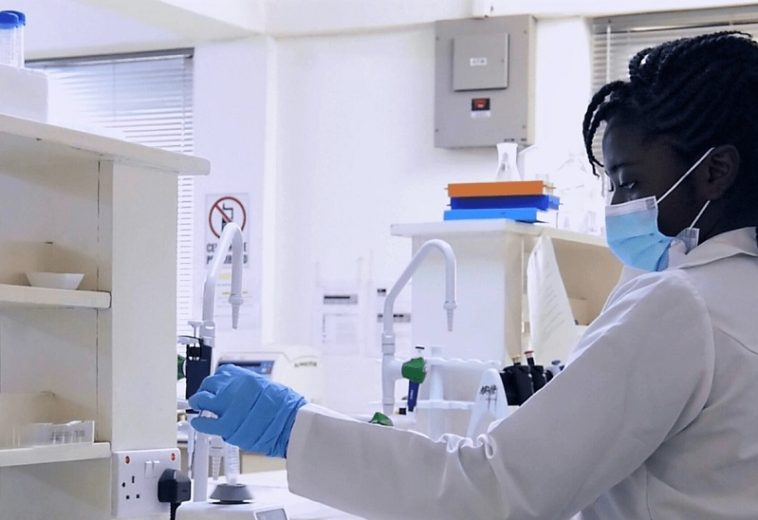Africa’s health journey is a powerful story of resilience and transformation. After decades of grappling with widespread infectious diseases, underfunded health systems, and rising non-communicable diseases, the continent is now entering an era of substantial health gains.
Nations across Africa are adopting bold strategies to combat epidemics such as HIV/AIDS and malaria while addressing emerging issues like mental health and chronic illnesses. By leveraging new technologies, nurturing local health expertise, and drawing on both community-driven and global partnerships, African countries are reshaping their healthcare systems for a healthier and more sustainable future.
HIV/AIDS and Malaria: Turning the Tide
Africa has made significant strides in controlling HIV/AIDS, reducing infections by 42% and AIDS-related deaths by 55% between 2010 and 2020. South Africa, for instance, increased antiretroviral therapy (ART) coverage from less than 10% in 2004 to 75% in 2020.
Similarly, malaria deaths have declined by 60% since 2000, thanks to initiatives like the Roll Back Malaria Partnership. The widespread distribution of mosquito nets and the use of innovative treatments have been central to this success, offering renewed hope for malaria-endemic regions.
Strengthening Healthcare Workforce
The expansion of healthcare workforces has significantly improved service delivery. In Ethiopia, the Health Extension Programme trained over 40,000 community health workers, increasing access to primary healthcare. This initiative contributed to a 70% reduction in child mortality since 1990, according to WHO data, demonstrating the power of community-led healthcare interventions.
From Epidemics to Resilience
Historically, communicable diseases such as malaria, HIV/AIDS, and tuberculosis have dominated Africa’s health landscape. However, the 2000s marked a turning point. Global initiatives like the Millennium Development Goals (MDGs) and later the Sustainable Development Goals (SDGs) propelled significant health improvements, supported by increased international funding.
The Global Fund to Fight AIDS, Tuberculosis, and Malaria, along with the US President’s Emergency Plan for AIDS Relief (PEPFAR), played pivotal roles in reducing disease burdens. As a result, HIV/AIDS mortality began declining from its mid-2000s peak, while child and maternal health outcomes improved markedly.
Progress in Health Systems and Disease Control
Infectious Diseases: Africa’s resilience in combating infectious diseases is evident in its response to outbreaks like Ebola and COVID-19. The 2014–2016 Ebola epidemic in West Africa demonstrated the importance of local health workers, supported by WHO and international partners. Lessons learned strengthened disease surveillance and response systems, proving vital during the COVID-19 pandemic. The Africa CDC, established in 2017, has since played a key role in coordinating pandemic responses.
Maternal and Child Health: Maternal mortality in Africa decreased by over 38% between 2000 and 2017, driven by investments in healthcare infrastructure and community health programmes. Initiatives such as the UN’s Every Woman, Every Child campaign have expanded maternal care, while countries like Rwanda have reduced child mortality through robust health system reforms and workforce development.
Non-Communicable Diseases (NCDs): The rise of NCDs, including diabetes and hypertension, presents a new challenge. African governments are now integrating NCD prevention and management into primary healthcare services, supported by initiatives like WHO’s Package of Essential NCD Interventions (PEN). Health screenings for chronic diseases have also increased in urban centres.
Vaccination and Immunisation: Africa’s commitment to vaccination has achieved notable successes, including maintaining polio-free status in over 30 countries. During the COVID-19 pandemic, more than 150 million vaccine doses were distributed through the COVAX initiative, ensuring equitable access. These efforts underline the importance of community mobilisation in achieving immunisation targets.
READ ALSO: Traditional Medicine in Modern Africa
Health Technology Innovations: Digital health is revolutionising service delivery, particularly in remote areas. Innovations such as mobile health platforms in Kenya have streamlined appointment scheduling and electronic health records. In Rwanda, drones are delivering medical supplies to hard-to-reach regions, exemplifying how technology can bridge healthcare gaps.
Policy and Financial Support
Increased financial support has underpinned Africa’s health transformation. By 2022, African governments collectively allocated around 7% of GDP to healthcare, reflecting steady progress. However, achieving Universal Health Coverage (UHC) by 2030 will require sustained investments, policy reforms, and expanded public-private partnerships.
Sustaining the Momentum
Looking ahead, Africa’s health systems face the dual challenge of consolidating recent gains while meeting rising demands. Emphasis on preventive care, enhanced disease surveillance, and digital health solutions will be critical. Scaling community health worker programmes and establishing long-term financing models will also play essential roles in sustaining progress.
Africa’s health transformation is a testament to resilience, innovation, and collaboration. By reducing infectious disease burdens, improving maternal and child health, and embracing technology, the continent has demonstrated that meaningful progress is achievable even in the face of significant challenges. With continued commitment, Africa can build on its successes and achieve a future of sustainable health for all.

















